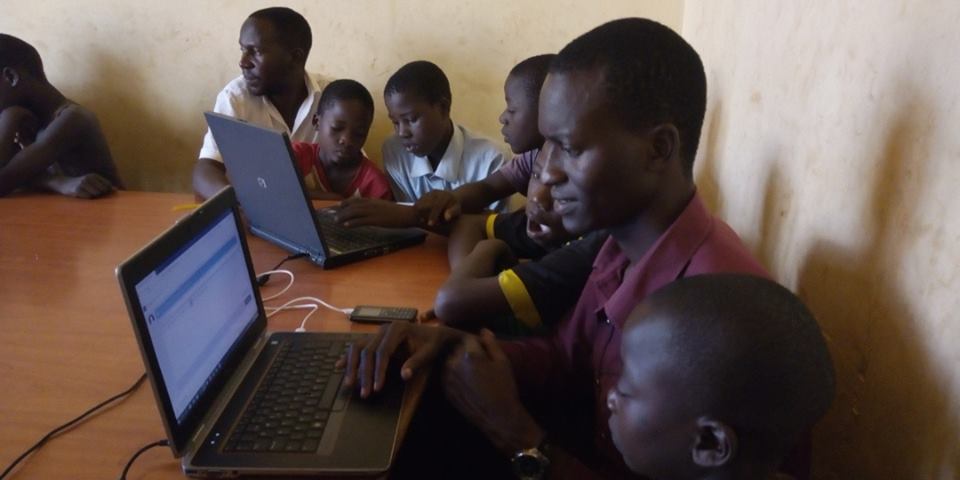This month the inequality question chosen by children living on the streets in Uganda and debated was ‘Do adults value the contribution children can make to society fairly?’.
The debate had 424 views and 92 responses, and included an interesting variety of viewpoints.
There were a range of answers from people who thought that children’s contributions were valued, those who thought it depended on the person/people involved and those who thought they weren’t valued at all. Some people gave reasonings for their opinions relating to children’s physical work in the community, children’s innocence and education levels.
Adults Do Value Children Contributions
 Many people think that adults do value the contribution of children to society fairly. This is based on children’s creativity and innocent way of looking at the world from a different angle to adults. Some argued that adults are especially likely to value a child’s contribution if they bring a particular asset to the community, for example children who have ideas that solve community problems or children who assist the police.
Many people think that adults do value the contribution of children to society fairly. This is based on children’s creativity and innocent way of looking at the world from a different angle to adults. Some argued that adults are especially likely to value a child’s contribution if they bring a particular asset to the community, for example children who have ideas that solve community problems or children who assist the police.
“Yes!! Children are proven to be more creative than adults. They provide different ways of looking at societal issues.” – Abdul
“Whilst not as experienced in life as grown-ups, I think a child’s innocence and straight forward way of looking at the world can be valuable. Grown-ups are weighed down by what other people think and social norms. We need to think more like children” – Hannah
“Yes, some children act as leaders of fellow children in the community.”- Ronald, Uganda
“YES. For example in a community where there is poor sanitation practices especially poor human waste management, I can suggest that every family should construct pit latrines to promote hygiene and sanitation. This is positive ideas for the community at large and therefore, my opinion is respected and honoured” – Erisa, Uganda
“YES. Especially in a community where there are many thieves and much lawlessness, I can inform and tip police or any authority to help handle the situation.”- Wasige Junior, Uganda
But Others Thought Differently
Some people think that children’s contributions are not valued fairly by society. This is explained by adults seeing themselves as more informed and important than children. This means that they ignore children’s contributions as they think they are worth less.
 “No, I think we always look down on children like they are too small. Yet for me I say children need listening to, they have honesty compared to adults.” – Fred, Uganda
“No, I think we always look down on children like they are too small. Yet for me I say children need listening to, they have honesty compared to adults.” – Fred, Uganda
“Adults don’t value children’s thoughts because young people are taken to be young and meant to be guided by the elder.” – Peter, Uganda
“No, I don’t think so (in the UK anyway). The current rhetoric towards children who question the views/practices of adults, is “you’re too young to understand”/”wait until you get a job and enter the real world” etc” – Zoe
“No, because in our parliament and many village councils no children are represented thus a negative signal”- Sadat Kizito
“No, because some children can easily be influenced and share views that have just been imposed on them.”- Abby, Uganda
Many of those who argued that children contributions were not valued went on to suggest that children should be valued more as they have a different perspective on the world to adults. It was nice to see positivity throughout the debate even within those who felt children’s contributions aren’t valued by adults fairly.
Some argued that it depends on which adult or child you are asking about
These people think that generalising doesn’t provide a full answer, they think that different factors affect how adults value the contributions children make to society.
“I think there are many factors to be considered before this can be answered, a few of these factors could be:
Age of adult – younger adults are closer in age to children, could they be more likely to value children’s contribution?
Are they a parent? – could parents be more likely to?
Community/religious perception – religious people may be more or less likely to value children more” – Jake
“children in different cultures are expected to have more of a contribution to society at different ages for different reasons. But in certain aspects such as debates or conferences, a lot of young children don’t have any interest in it or a full understanding. This may be a reason adults don’t take into account what some children want to contribute to society.” – Leanne
Education Matters
Many answers suggested that whether or not adults value the contributions of a child will depend on the child’s level of education. They suggested a child who is educated is more likely to be valued by adults than a child who is uneducated. This is very interesting because it shows how one inequality can lead to another. Income inequality leads to education inequality and this seems to lead to social inequality, according to our contributors.
“it could also depend on who the child is. For example, if they are exceptionally clever/talented and people are aware of this then adults might automatically value the contribution these children make to society.” – Lauren
“when a child is educated, he makes a contribution to the society. if he is a doctor he treats patients in the society.”- Miya, Uganda
“Yes and No a child’s idea will only be accepted depending on the level of education for example if a child is in education his idea is so much considered compared to the one not in education or school.” – Alex, Uganda
Responding to Each Other
We also had contributors replying to each others answers which allowed people to reconsider their own ideas or think about why they held certain opinions.



Conclusion
Overall the debate was very informative and we saw a variety of views explained. It was really good to see people responding to each others comments as this makes people think even more about why they have different opinions. The positive outlook of many contributors was also encouraging as even those who saw issues with how children’s contributions are valued today thought that that this could change in the future.
Based on the answers suggesting educated children’s contributions are more valued, maybe education is the answer? What do you think?





0 Comments